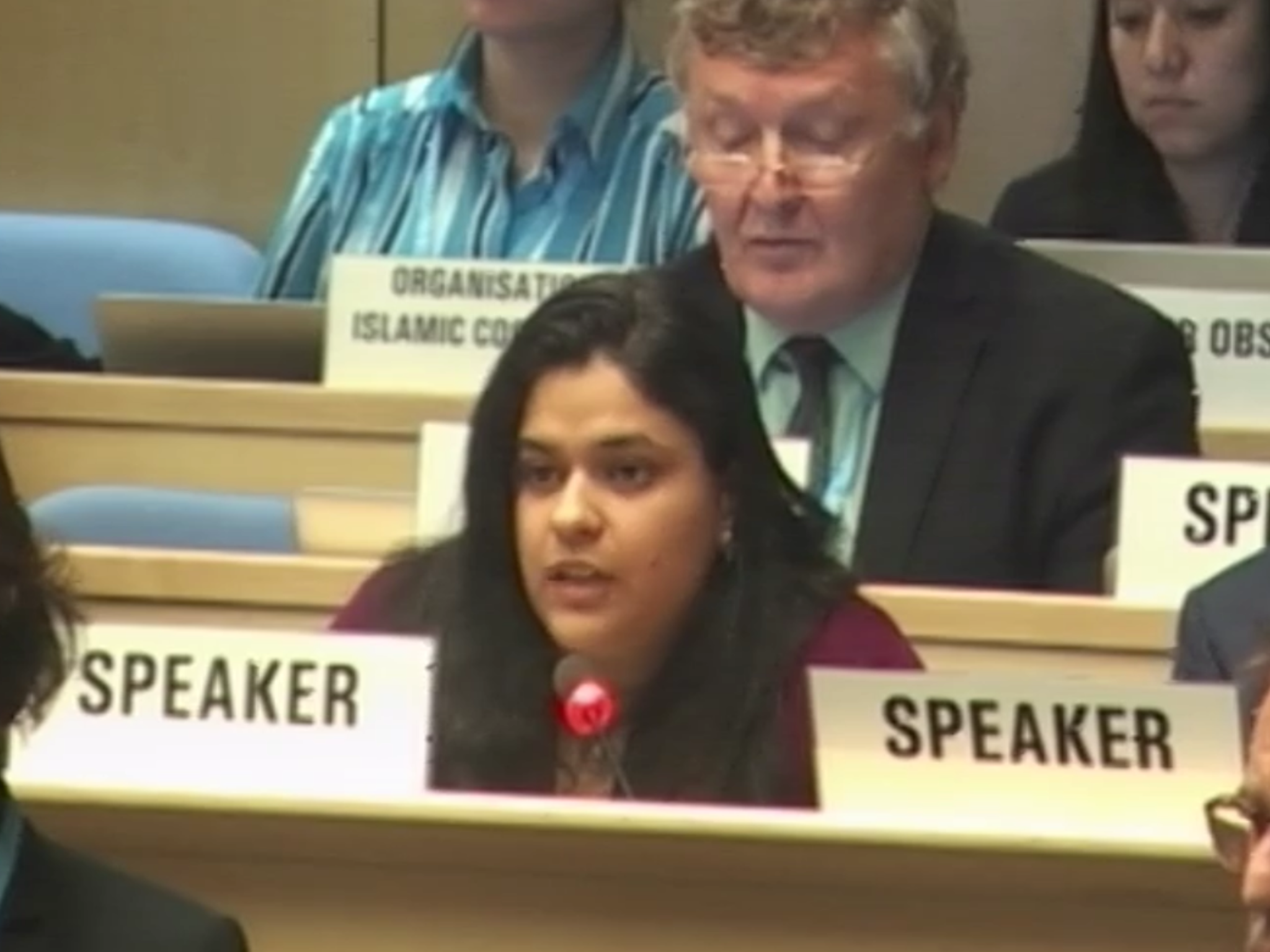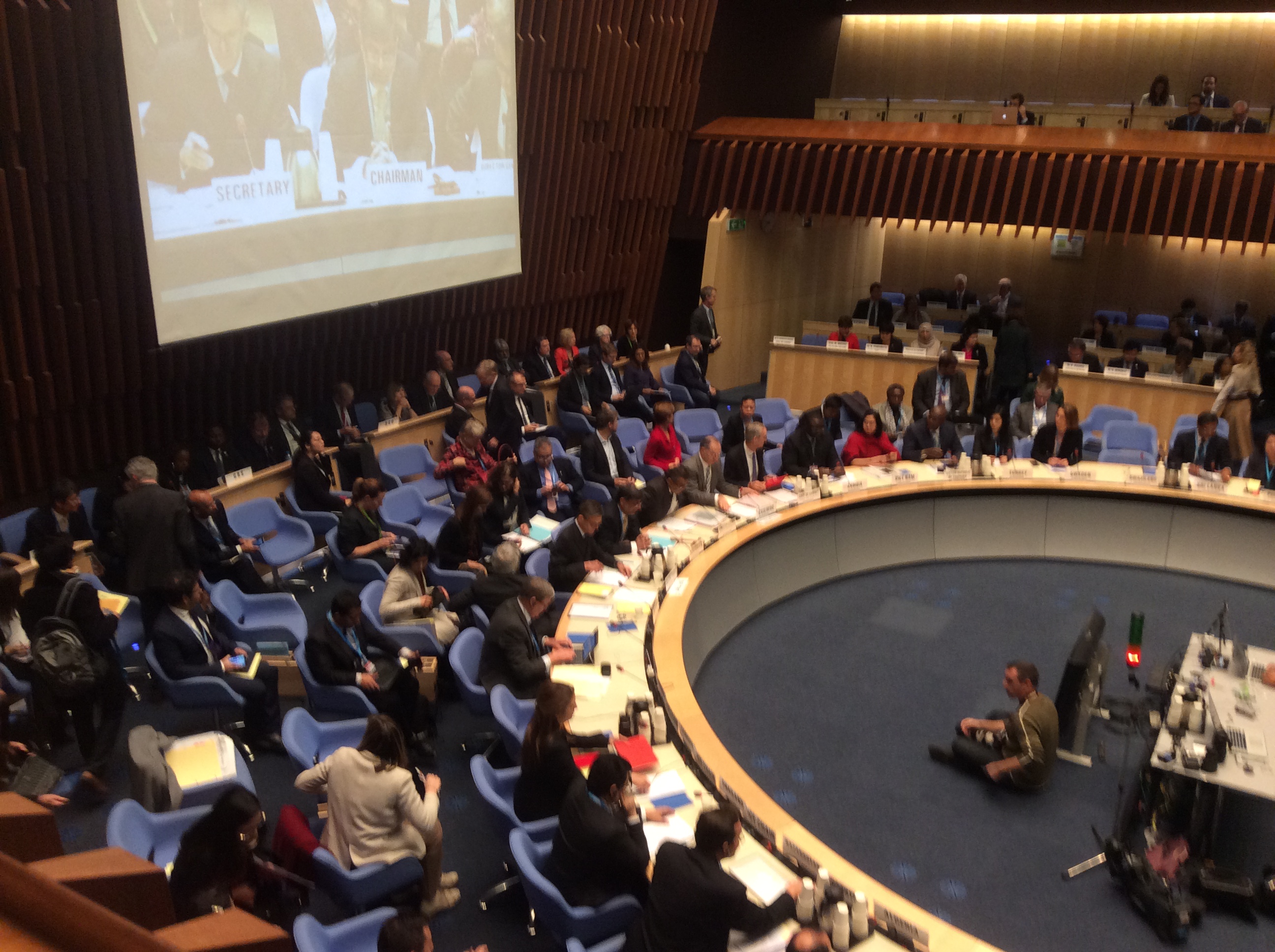




WHO consultation on the 13th General Programme of Work GPW13 (in view of EB 142, January 2018): Selected civil society and media voices
WHO has published its draft 13th General Programme of Work (GPW13):
- “Advance edited” second draft GPW 13 (5 January 2018)
- Draft GPW13 (November 2017)
- Draft concept note (consultation in August 2017)
“The draft 13th General Programme of Work will be discussed at a Special Session of WHO’s Executive Board on 22 and 23 November. Following the consideration of this matter at the special session, the Secretariat will prepare a draft 13th GPW for the 142nd session of the Executive Board in January 2018, with a view to its further consideration and submittal by the Board to the Health Assembly in May 2018 for final consideration and approval.”
………………
Source: http://www.who.int/about/gpw-thirteen-consultation/en/
WHO EB Special Session, 22-23 November 2017: http://apps.who.int/gb/e/e_ebss4.html
142nd Session of the WHO EB, 22-27 January 2018: http://apps.who.int/gb/e/e_eb142.html
Selected civil society and media voices
We will publish here assessments of the draft GPW13 input that go beyond advocacy for a particular topic to be included or highlighted in the WHO strategy for the next four years. Please send us your input either as a link (if published) or as a PDF file, together with an abstract, and indicate if you have also submitted it to WHO through their online form.
Comments on draft GPW13
- People’s Health Movement PHM (link to PDF, submitted)
“In addition to its direction setting function this GPW also serves to affirm and underpin Dr Tedros’s authority as the new DG. It differentiates his leadership from that of Dr Chan and offers a newly polished vision which might shore up the confidence of member states and re-inspire WHO staff and the wider public health community. Importantly it supports the case for loosening the donor chokehold on WHO: lifting the freeze on assessed contributions and untying voluntary contributions. The proposed ‘new’ vision however contains within it imprints of the existing deficiencies in WHO’s work which stem from the donor chokehold on WHO and the dominant neoliberal framing of health development challenges and organisational policies – often aggressively pushed especially by rich member states of the North.” - MMI Network (PDF, submitted)
“The GPW is the highest level planning document of WHO and sets out the policies and priorities which will frame the biennial programme budgets that it encompasses. It is proposed that GPW13 will span the period 2019-23. This document and the related processes therefore require our highest attention. We particularly appreciate that public consultations on the GPW13 are being undertaken. We hope that input received through this channel will complement the short oral statement at the upcoming EB Special Session (EBSS), and we hope that such public hearings will continue in view of the regular EB session in January.” - Baby Milk Action/IBFAN (PDF, submitted)
IBFAN/GIFA (PDF, submitted)
“We are concerned that suggestion to ‘align’ WHO’s role and its General Programme of Work with the SDGs, in particular with the partnership SDG 17, will result in undermining WHO’s capacity to fulfil its constitutional mandate and core functions. Our focus is on the need to protect this capacity which is closely linked with the public mandate to protect WHO’s independence, integrity and trustworthiness.”
> See also: IBFAN statement at EBSS (here), IBFAN comment on earlier concept note (here), blog “IBFAN at WHO’s 13th General Programme of Work” - IOGT International (link to PDF, submitted)
“Key messages: 1. Design a coherent approach to cross-cutting risk factors common to all three strategic prioritie. 2. Strengthen prevention and health promotion as corner stones of global health. and as fundamental tools to achieve more healthy lives. 3. Develop WHO’s role in providing technical support to countries for domestic resource mobilization for health. 4. Better address the health needs of adolescents. 5. More clearly outline the response to commercial determinants of health”
> See also: Blog by Maik Dünnbier (here), contribution to earlier consultation on draft concept note (here) - International Association for Hospice and Palliative Care IAHPC (PDF, submitted)
“The International Association for Palliative Care and our over 1000 members worldwide, welcome the draft GPW focus on alleviating the financial hardship associated with access to healthcare. This ambitious program of work calls for visionary, ethical, and disciplined leadership, as well as technical expertise. As an organisation in official relations with WHO for more than seven years, we are more than willing to assist in this enterprise, and request that the GPW include a palliative care indicator (see below) in the Impact Framework.”
> See also: Statement at EBSS (here) - Public Services International PSI (PDF, submitted)
“The variegated nature of global governance in its evolution, without prejudice to the primacy of member states, and the ecosystem of partnerships required to achieve the SDGs targets within such a milieu are addressed on pages 8 and 11 respectively. A missing gap within the spectrum of non-State actors spelt out, is the associational presence of the health workforce.” - Garance Upham (PDF)
“The WHO Executive Board just met Nov 22-23 at WHO headquarters. We saw there WHO director general Dr Tedros riding on a high horse with a 3 billion people objective: at the core of the new program, one billion people covered by UHC (Universal Health Coverage). (…) Along with a clear cut definition of UHC implementation based on the rights of people for real good efficient healthcare delivery, well, yes, many of us in civil society could follow, support and assist in achieving Tedros’ call for the three billions!” - Remco van de Pas (PDF)
“My main comment on the 13th GPW would be to understand properly the political-economy behind funding the program. We can hence not exclude a discussion on the 13GPW from its budget discussions (in WHO’s talk ‘the financing dialogue’).” - Julian Eckl (PDF, submitted)
“In the following comment, I highlight four aspects that will have to be scrutinized during the upcoming discussions in the governance bodies in order to fully appreciate their implications and to be able to take an informed decision: first, the consequences of the call for a further round of decentralization by increasing autonomy at the country level; second, the consequences of the demand that WHO should cooperate more closely with “innovation funders and innovators”; third, the future roles of the individual governance bodies including the future balance between formal and informal governance mechanisms; fourth, the question of how knowledge about the work of WHO will be produced and what kind of empirical material will consequently serve as the basis for evaluating WHO.”
Comments on the earlier concept note
- Aidsfonds and the International HIV/AIDS Alliance (PDF, submitted)
“WHO must prioritize Community Action for health in the next WHO programme of work. Community Action is essential to build strong and sustainable systems for health and to contribute to the achievement of the SDGs.” - Judith Richter (PDF, submitted, updated & expanded version)
“The aim of this paper is to point at some suggestions where ‘aligning’ WHO towards the SDGs risks undermining WHO’s capacity to fulfil its constitutional mandate and prime functions. This may be the case, in particular, with respect to the SDG 17 which, in the words of WHO, is “a cross-cutting goal on means of implementation that is relevant to all the others.” - Julian Eckl (PDF, submitted)
“In the following comment, I argue that GPW13 should focus on transparent, accessible, and accountable governance as a precondition for and proper site of WHO evaluation. Decent evaluation needs time and room for deliberation rather than relying predominantly on business administrative tools. Equally troubling is the preoccupation with the quantitative measurement of impact at the exclusion of qualitative means and methods.”
Media voices
- Jenny Lei Ravelo, Devex, 8 November 2017
WHO’s draft program of work: Some answers, then questions - Richard Horton, The Lancet, 18 November 2017
Offline: WHO — a roadmap to renewal? - Sana Contractor, IHP news, 24 November 2017
New Beginnings at the WHO: DG Tedros’ first Executive Board meeting - Richard Horton, The Lancet, 9 December 2017
Offline: The tasks facing Dr Tedros
